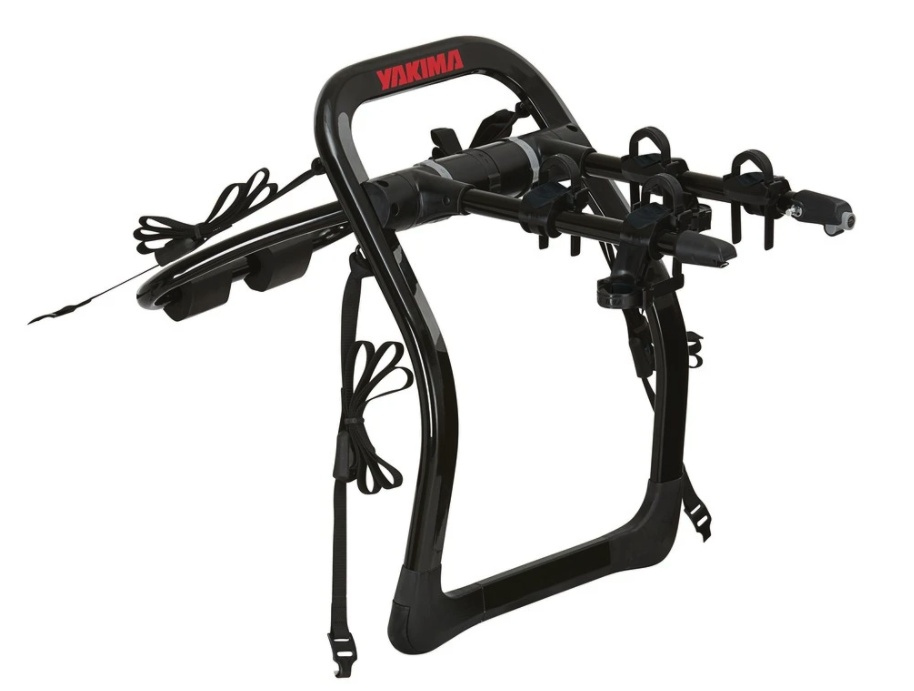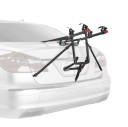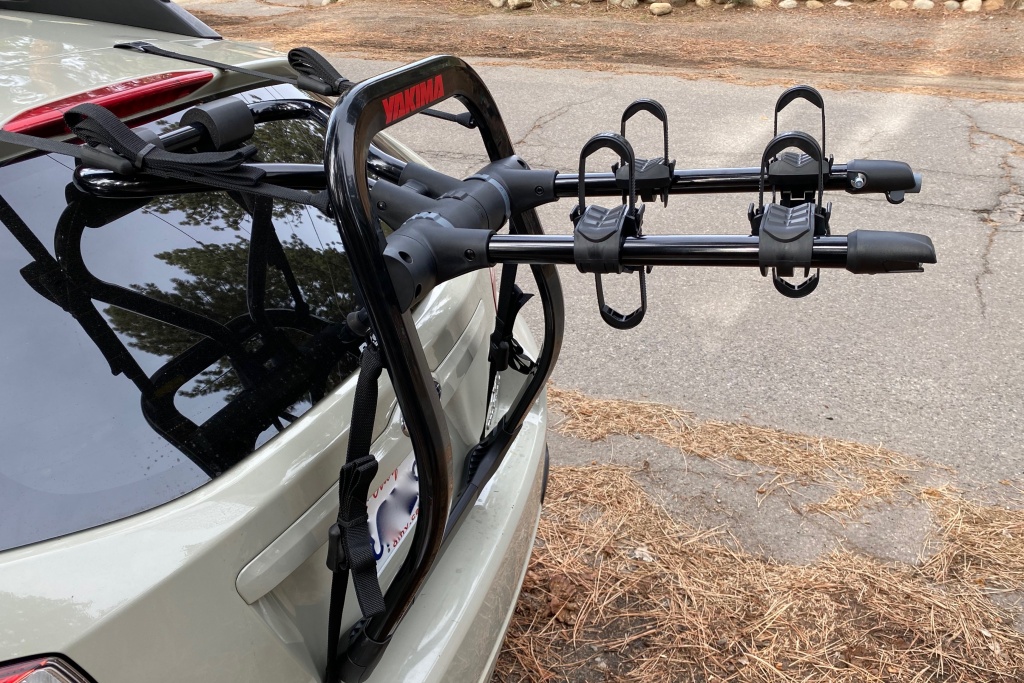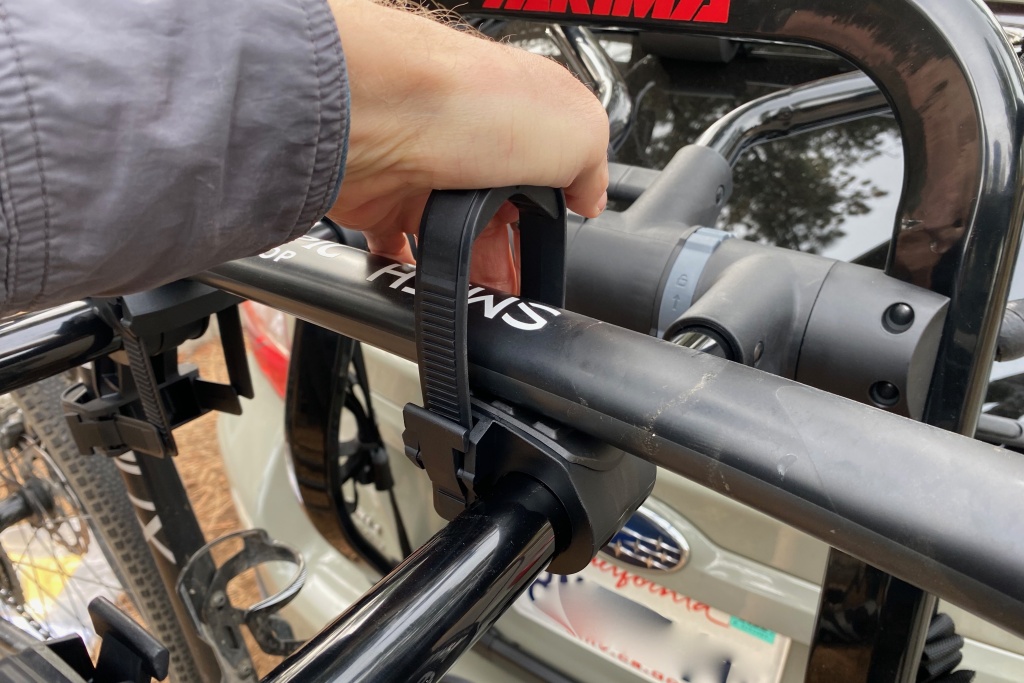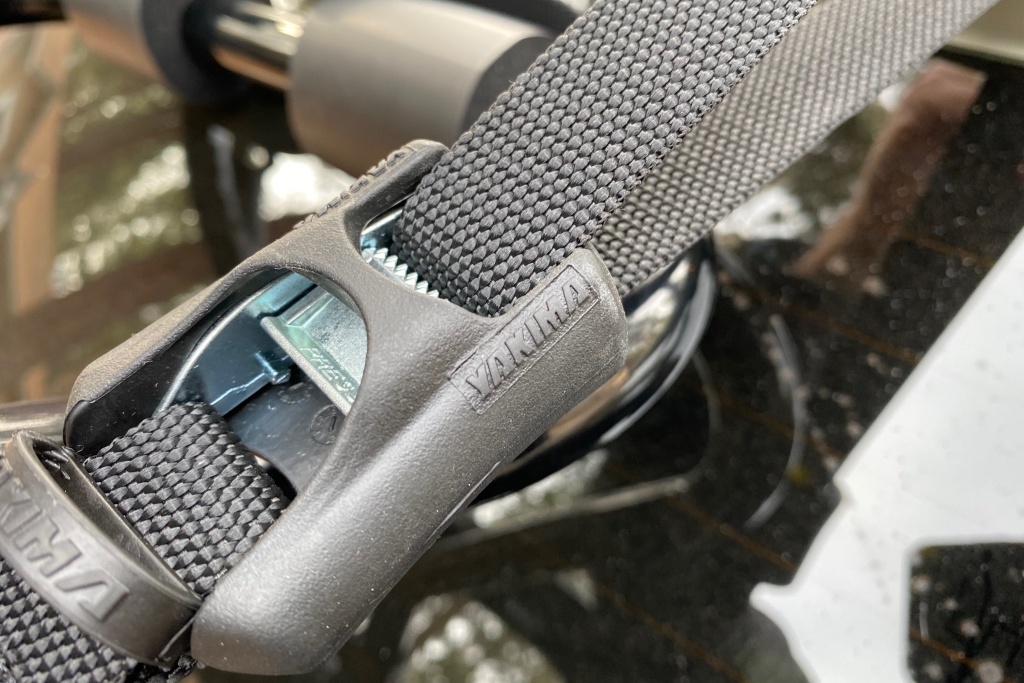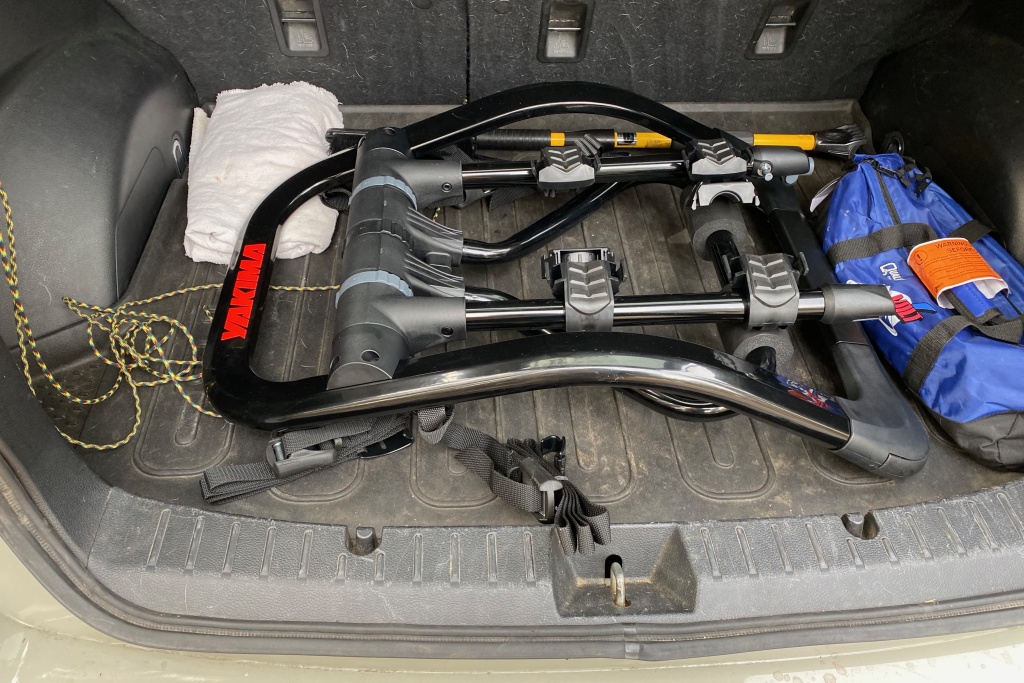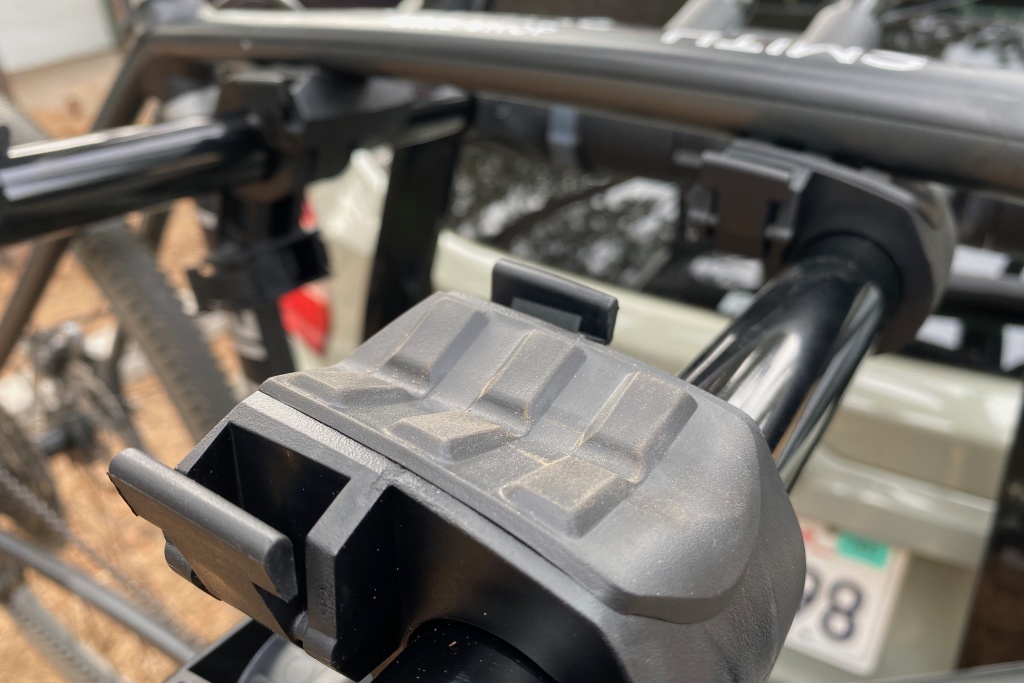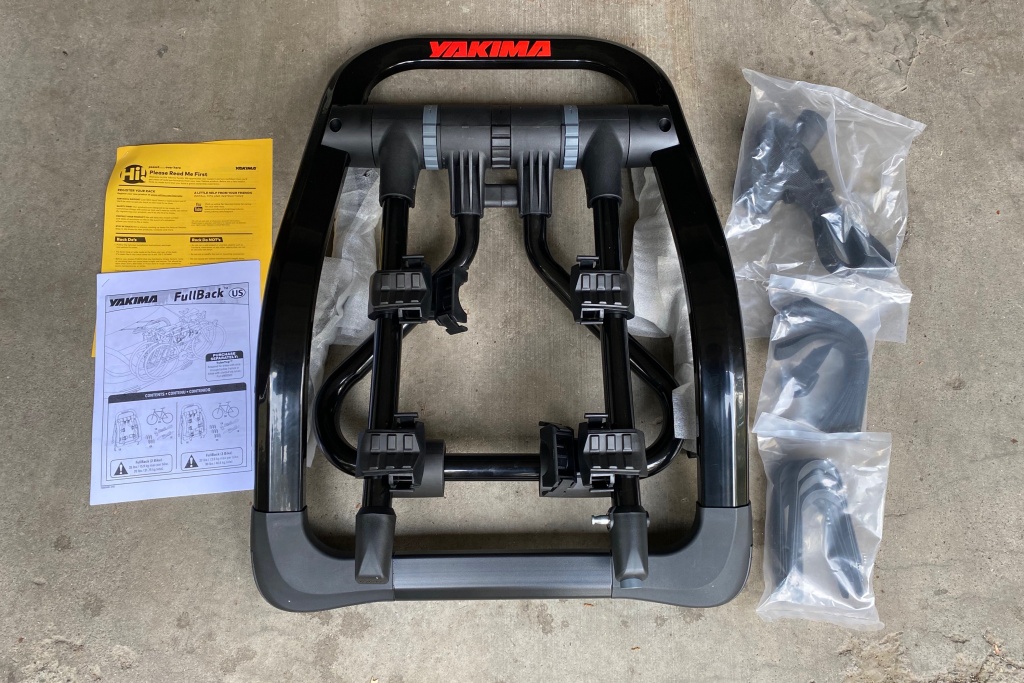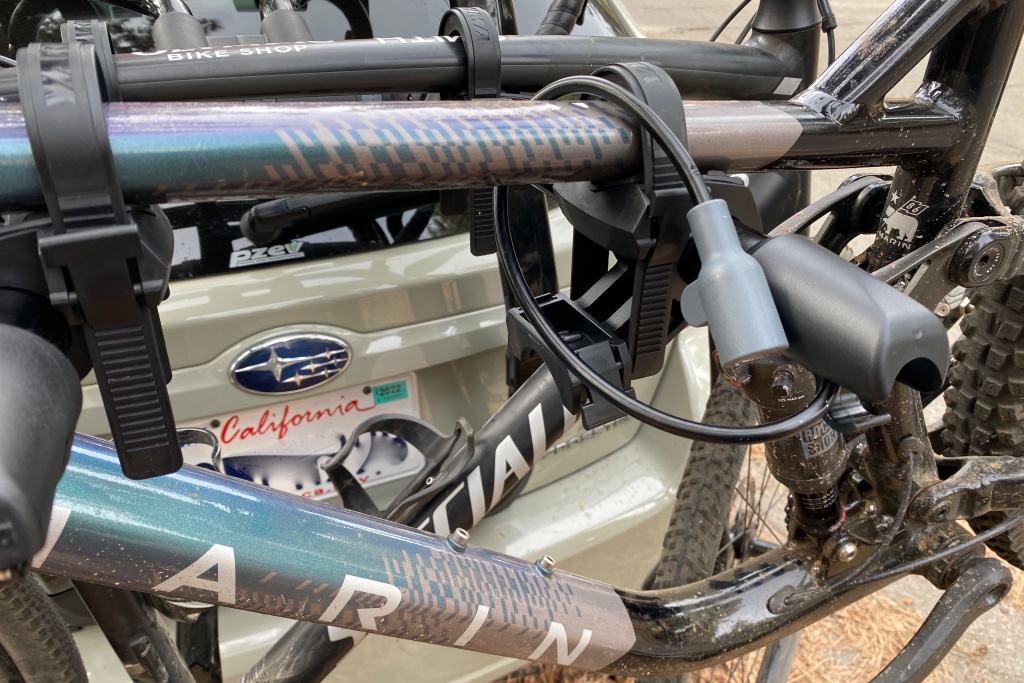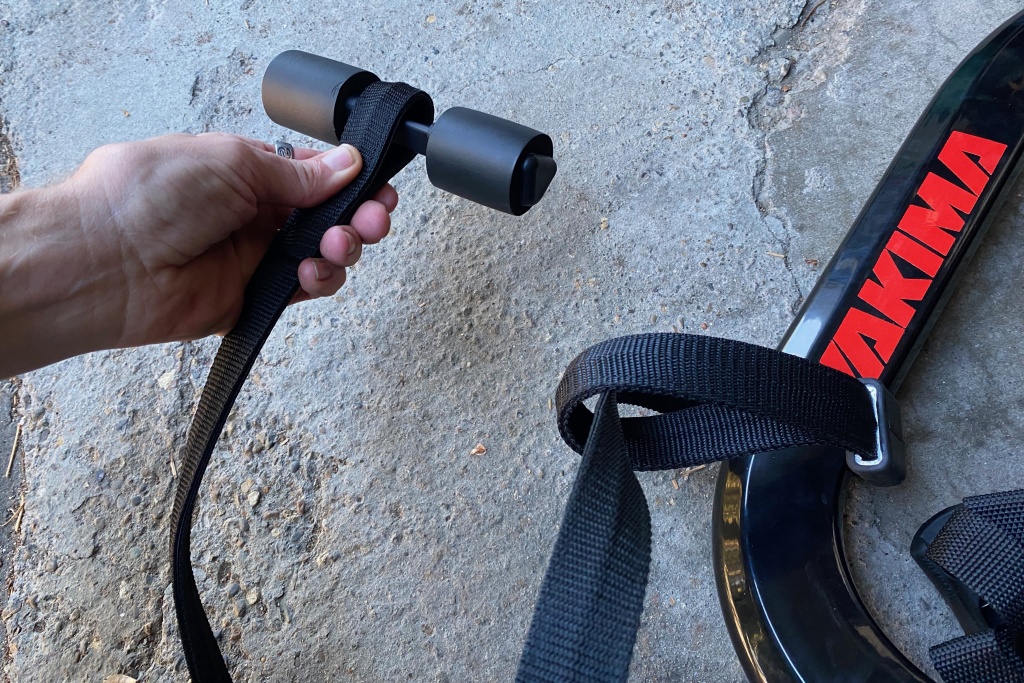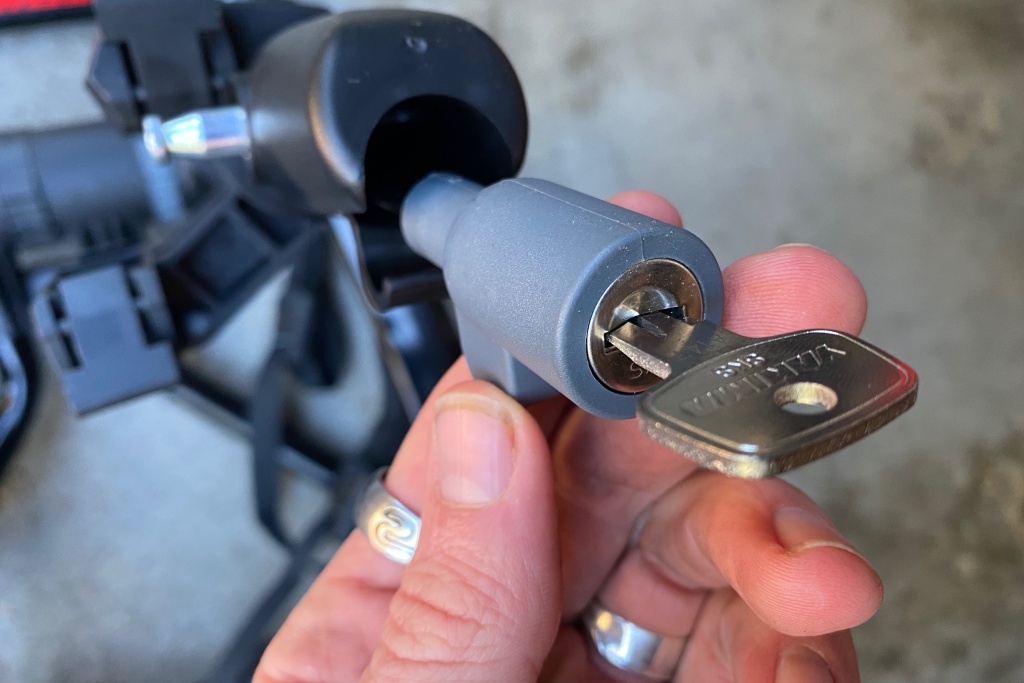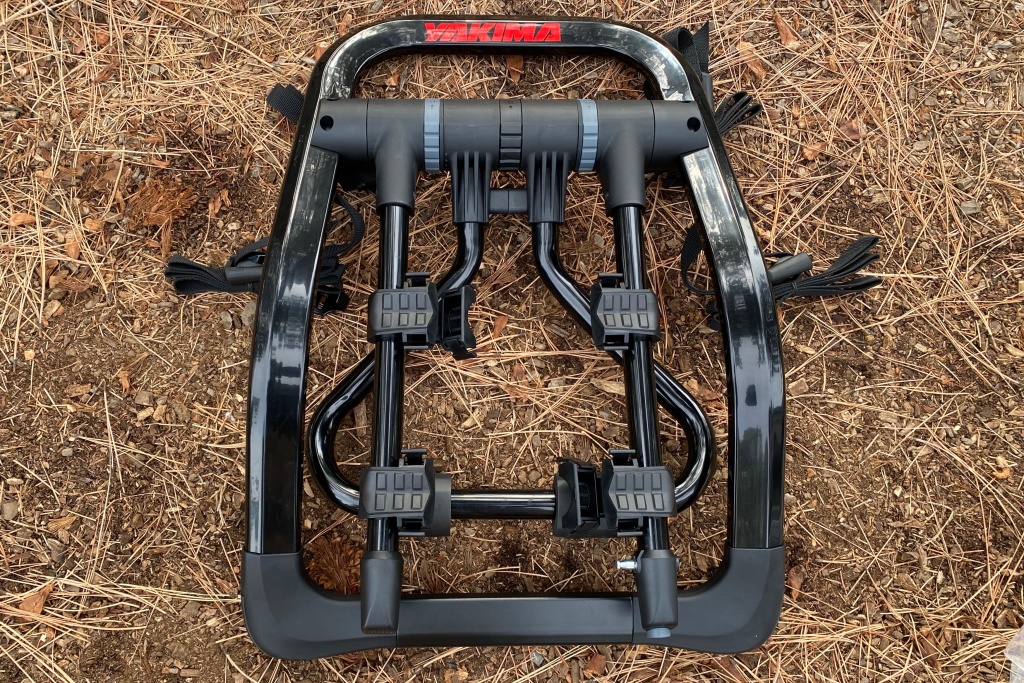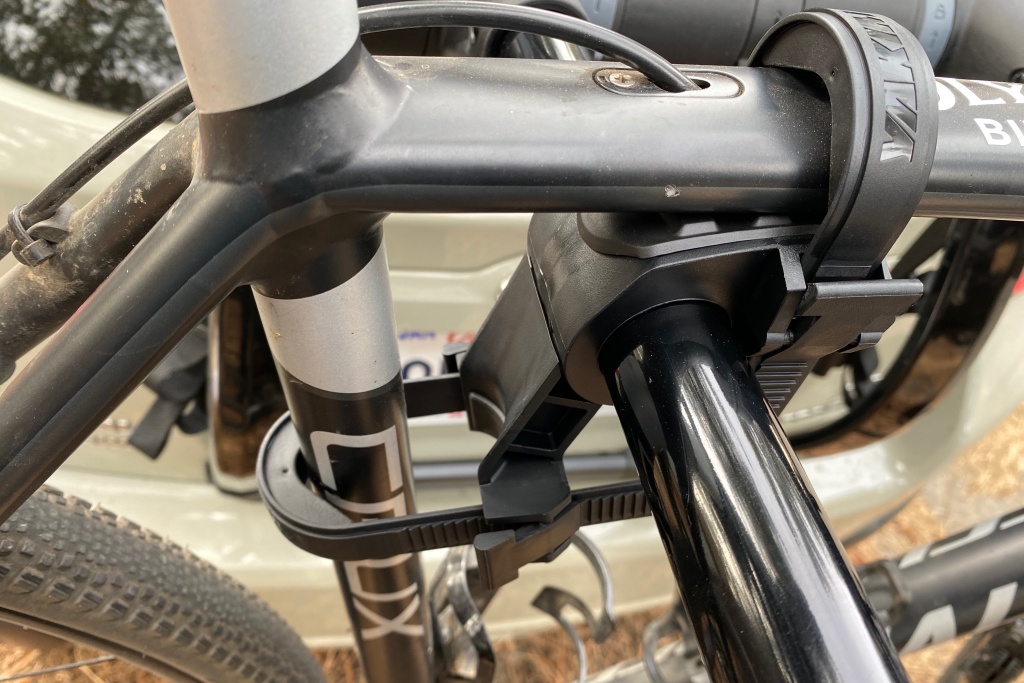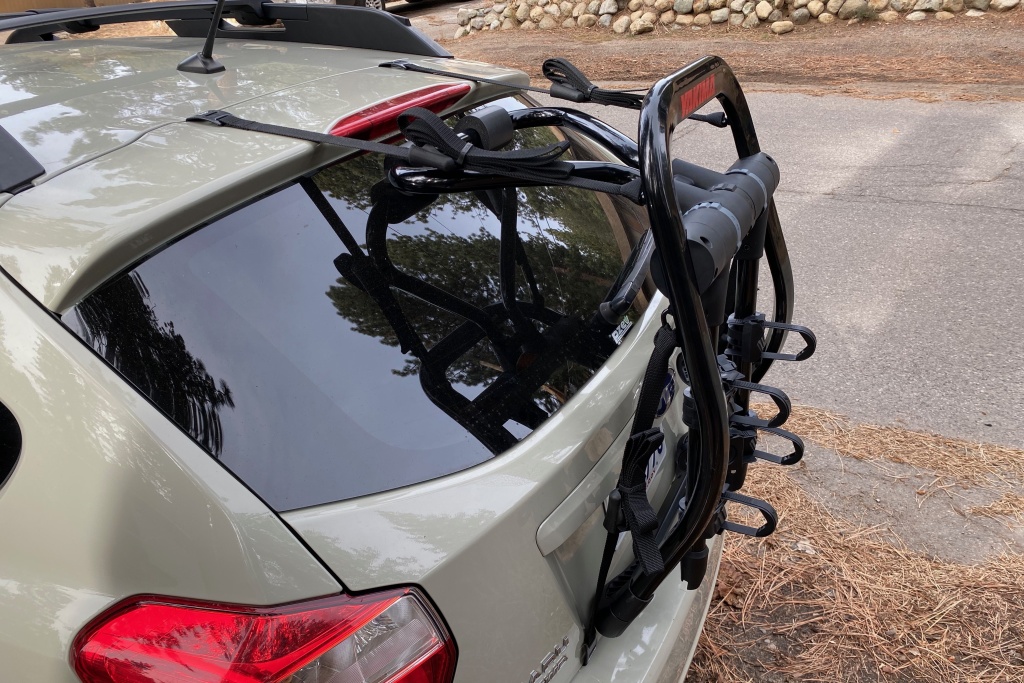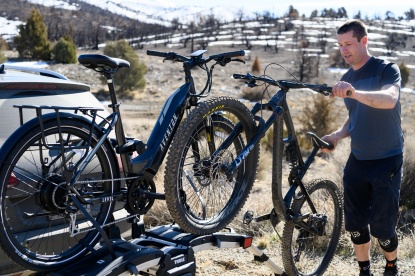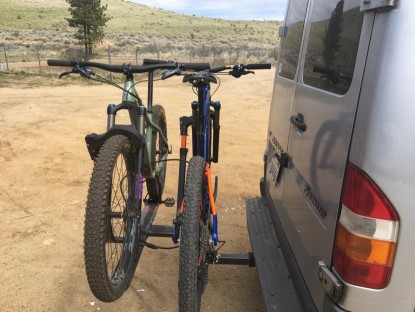Yakima FullBack 2 Review
Our Verdict
Compare to Similar Products
 This Product
Yakima FullBack 2 | |||||
|---|---|---|---|---|---|
| Awards | Best Bang for the Buck Hitch Rack | Best Fork Mount Roof Rack | Best Trunk Rack on a Tight Budget | ||
| Price | $259.00 at REI Compare at 3 sellers | $466.88 at Amazon Compare at 2 sellers | $199.00 at REI Compare at 2 sellers | $197.40 at Amazon Compare at 2 sellers | $60 List $40.85 at Amazon |
Overall Score  |
|||||
| Star Rating | |||||
| Bottom Line | A quality and convenient trunk-mount option for occasional bike rack users | This rack combines solid performance and a reasonable price | An ideal rack when used on vehicles with low roof heights | This rack eliminates the need for axle adapters and can carry nearly any type of bike on the market | This affordable trunk mount rack has limited versatility and no security features |
| Rating Categories | Yakima FullBack 2 | RockyMounts MonoRail | Yakima Front Loader | Kuat Trio | Allen Deluxe 2-Bike... |
| Ease of EveryDay Use (20%) | |||||
| Ease of Removal and Storage (20%) | |||||
| Versatility (20%) | |||||
| Security (20%) | |||||
| Ease of Assembly (10%) | |||||
| Durability (10%) | |||||
| Specs | Yakima FullBack 2 | RockyMounts MonoRail | Yakima Front Loader | Kuat Trio | Allen Deluxe 2-Bike... |
| Style | Trunk | Hitch (tray) | Roof | Roof | Trunk |
| Bike Capacity | 2 | 2 | 1 | 1 | 2 |
| Lock? | Yes | Yes | Yes, sold separately | Yes | No |
| Rack Weight | 21 lbs 10 oz | 44 lbs 2 oz | 13 lbs | 7 lbs | 7 lbs 9 oz |
| Max Weight Per Bike | 35 lbs | 60 lbs | 30-40 lbs (varies based on crossbar spread) | 45 lbs | 35 lbs |
| Other Sizes Available? | Yes, 3 bike | Yes, 1.25" reciever, single bike add-on sold separately | No | No | Yes, 3 and 4 bike versions |
| Cross Bar Compatibility | N/A | N/A | Fits Yakima round, square, factory or aerodynamic crossbars | Most factory | N/A |
Our Analysis and Test Results
Yakima has been producing quality bike racks for many years, and the FullBack is their top-of-the-line trunk mount model. This rack can fit a wide range of vehicles, though it suffers from the same limitations that plague most other racks of the same style. This rack is limited to lighter weight bikes, 35 lbs or less, and works best with traditional frame styles that have a horizontal top tube. It is fairly straightforward to use, and it folds down small for transport or storage. We feel it is a good rack and a viable option for infrequent rack users.
Performance Comparison
Ease of Everyday Use
Once the rack is fit and attached securely to the vehicle, it is relatively easy to use. Loading the bikes is fairly straightforward, and attaching them to the rack is pretty simple given the user-friendly Zip Strip system. The biggest concern regarding everyday use is the sizes and styles of bikes you are loading, as there can be some bike-on-bike contact that may make it harder to load without interference.
With the rack attached to the vehicle, the first step is to unfold the support arms to their carrying position. This involves turning the locking mechanism at the “hub” in the center rack up to unlock each arm, then rotating the arm up and locking it in place just above horizontal. These locking dials at the “hub” can be a little fiddly and tough to turn. With the arms extended, lift the first bike with the drivetrain facing away from the vehicle and place the top tube on the bike cradles closest to the vehicle. Insert the zip strips from the top into the ratcheting system on the bike cradles and push them down until they are snug around the top tube of the bike frame. A third zip strip should be added to the lower, folding anti-sway stabilizer and wrapped around the seat tube. The process for the outer bike is the same except bike facing the other direction to the bikes don't tangle. Once both bikes are loaded, pass the safety strap through all of the bike wheels and the rack to keep the bikes from swaying and the wheels from spinning while in transit. To unload the rack, simply reverse the steps in the loading process.
Ease of Removal and Storage
Installation and Removal of the FullBack is relatively easy, but it is important to reference the user manual and the fit notes on the Yakima website to ensure that you do it correctly for your specific vehicle. There are some important considerations regarding hook connection points, spoilers, etc, that deserve attention. This will vary depending on your vehicle style and trunk design. That said, if you check the fit notes and follow the instructions carefully it should be relatively easy. With a reasonably light weight and small collapsed size, it is also very easy to move around and store when not in use.
The first thing the fit notes will tell you is the “hub setting”, which basically tells you the correct angle setting for the upper frame arm. Once you've set the hub in the correct position and locked it in place you'll connect the upper straps with the hooks over the top edge of the trunk and tighten them until they support the weight of the rack in the correct position. Hook the lower straps under the bottom edge of the trunk and snug them up. Then, fully tighten the upper straps, then the lower straps, and wrap up the extra strap length and store it in the strap storage bands by the cam on each strap. Ensure the rack is secure by testing it by hand. Once fully loaded with the weight of bikes, it may be necessary to retighten the straps if they sag, and checking it periodically while traveling is also recommended.
To remove the rack, you'll reverse the steps in the installation process. Lower the support arms, loosen the lower straps enough that you can unhook them from the trunk then push the rack up to unhook the upper straps. Once the rack is off the vehicle you can lower the upper frame arm and fold the rack down to its smallest, collapsed position. The FullBack 2 we tested weighs 21 lbs 10 oz, so it is fairly lightweight and easy to carry. Folded dimensions of 23 W x 30 L x 9 H mean that it doesn't take up to much storage space and can easily fit in the trunk of most vehicles when not in use.
Versatility
The FullBack 2 is a mixed bag in terms of its versatility. It is highly versatile in terms of vehicle fit, and it can be used on a huge number of sedans, hatchbacks, station wagons, mini-vans, and SUVs. That is one of the strengths of trunk-mount racks. It does not work with all models of vehicles, however, so it is important to check the Yakima website to see if it is compatible with the vehicle you intend to use it on.
The FullBack suffers a bit from a versatility standpoint when it comes to carrying bikes. The support arms are horizontal so they skewer the frame, this works works best with standard double diamond frame shapes. Bikes with large, open front triangles and straight, horizontal top tubes work the best, and you can make it work with some more complex frame designs. Many modern full-suspension mountain bike frames will be challenging or impossible to fit. Yakima does make an adapter, called the TubeTop ($49), that spans between the stem and seatpost to help carry oddly shaped bikes that may not otherwise fit. Another consideration is the 35 lbs per bike weight limit. This will work for a lot of road, mountain, and townie bikes, but it will not handle heavy e-bikes or heavier mountain bikes.
Ease of Assembly
Like most trunk mount bike racks, the FullBack 2 scores well here because it comes fully assembled and ready to use. All you have to do is take it out of the box, unfold it, and fit it to your vehicle.
Security
The FullBack does has some security features that could work to deter opportunistic bike thieves. It comes with a “trunk security strap” to lock the rack to the vehicle, as well as a cable lock that extends out of one of the support arms to lock around the outer bike frame. That said, this rack, and most other trunk-mount racks, are among the least secure styles of racks on the market, in our opinion.
The FullBack has 4 nylon webbing straps that attach the rack to the back of the vehicle. These straps run through simple cams that hold them in position. The nylon straps do a fine job of holding the rack on the vehicle, but they can easily be loosened, or the straps cut if someone wanted to make off with the rack. Yakima includes a “trunk security strap” with the FullBack. This strap has a steel cable inside, and it gets looped around the rack with the other end closed in the trunk door. The use of this security strap will definitely make it much more difficult for anyone to just pull this rack off the back of your car, if you can make it fit. We couldn't get the end of the security strap through the small gap on the Subaru Crosstrek we used for testing.
A cable lock extends out of one of the support arms and can be looped over the top tube of the outermost bike to secure them on the rack. While this undoubtedly will make it harder for anyone to simply pull a bike off the FullBack, this cable is relatively thin, and any determined bike thief could quickly and easily cut through it with a set of bolt cutters or a similar tool. Make no mistake, this lock feature is far better than none at all, but we still wouldn't leave our bikes unattended on this rack for an extended period.
Durability
The FullBack has a relatively robust and sturdy feel, though we do have some concerns about its durability. The frame itself feels quite rugged, but the webbing straps, rack adjustments, and other plastic parts could certainly be prone to wear over time or with careless use. Yakima does sell replacement parts including straps, zip strips, cradle pads, etc, should you damage any of the wear parts on your rack, which could help extend its usable lifespan.
First, the FullBack has a strong and durable frame with a high-gloss painted finish that seems like it should stand up well to the elements. The adjustments in the “hub” in the center of the rack are a little awkward to operate, though they seem relatively secure when used properly. The plastic cradles and zip strips could potentially be damaged if used carelessly, but the zip strips can't really be overtightened, so it should be harder to strip the teeth. All of the plastic parts will slowly but surely break down over time due to exposure from the elements, but we'd imagine that will take several years to develop. The webbing straps that attach the rack to the vehicle do feel fairly sturdy. That said, they will also eventually be susceptible to damage from the elements, or could easily be cut. The rubber strap storage bands also feel like they could potentially break if pulled too hard or too often.
Value
The FullBack is offered at a competitive price, and we feel it is a relatively good value. It has a robust construction and feels like it was built to last. Assuming this rack fits your vehicle and works with your bikes, we'd expect most users would get their money's worth from the FullBack.
Conclusion
The FullBack is a quality option best suited to less frequent rack users seeking a convenient, portable, and easily storable trunk mount bike rack. It suffers from the same bike fit and weight limitations as other racks of the same style, and it is best suited for use with bikes that have horizontal top tubes. That said, we feel this rack will work well for many users assuming care is taken when attaching it to the vehicle and loading bikes on the rack.


